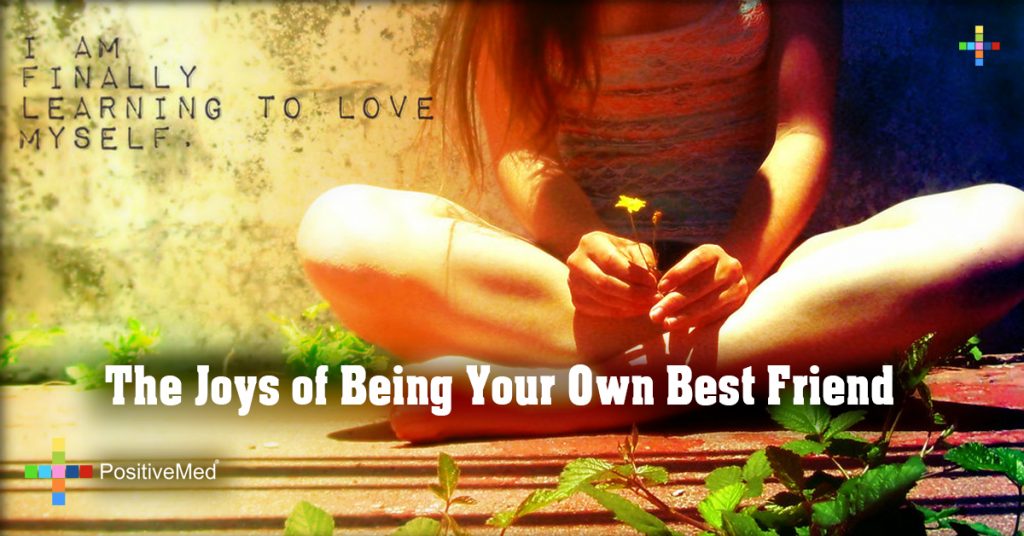
[nextpage title=”…”]
The Joys of Being Your Own Best Friend
Are you kinder to others than you are to yourself? Self-esteem is the subject of new social research. People who excel at supporting others often shortchange themselves. They’re quick to self-criticize for falling short of goals. Conversely, people with high self-esteem have less anxiety and depression. They view themselves and others in an optimistic light.
This article explores why many people are lacking in self-love. It highlights the benefits of befriending yourself. It also details how to raise your self-image if you’re low on the totem pole.
SELF-WORTH VERSUS SELFISHNESS
University of Texas studies shows that many people lack self-esteem because their fear of becoming selfish. They believe that scrutinizing themselves helps to maintain high standards. Clinical psychologist Dr. Lisa Firestone advises that self-worth shouldn’t be based on external actions. It needs to be grounded in your inherent value as a unique individual. Self-regard is all about who you are, not what you do.
High self-esteem doesn’t imply that you’re proud or arrogant. It reflects self-acceptance and confidence. These traits enhance the enjoyment of life.
UNDER THE MAGNIFIER
University professor Dr. Kristin Neff states that our competitive society tells us we must be above-average to feel good about ourselves. However, there will always be other people who rate higher than we do in certain aspects of life. Many people will be more successful, attractive, and prosperous than we are. Comparing ourselves with others sets the stage for poor self-regard.
HEALTH RISKS OF LOW SELF-ESTEEM
Basing your value on external factors is hazardous to your health. A University of Michigan study canvassed college students regarding self-worth. Those whose self-image was linked to externals such as appearance and academics reported more anger, stress, and relationship conflicts. They were also subject to eating disorders, alcohol use, and drug abuse. Students who based their worth on intrinsic traits reported feeling healthier. They earned higher grades and were less likely to suffer from eating disorders and substance use.
WHAT REALLY COUNTS
Though achievement can build your self-esteem, your worth shouldn’t be conditional. Clinical psychologist Dr. Donna Rockwell emphasizes that your unique qualities constitute your value. No one has your combination of talents and strengths. The joys of being your own best friend lie in acknowledging your singular greatness.
SIGNS OF SELF-COMPASSION
You’re in the ideal emotional space when you give the same support to yourself as you would a friend. When someone you care about feels insecure, you give them a confidence boost. If a loved one has anxiety concerning an upcoming event, you encourage them. If a friend fails in realizing a goal, you shower them with support.
[/nextpage] [nextpage title=”…”]
Here are signs of self-compassion:
When faced with personal inadequacies, you don’t judge yourself.
When suffering, you treat yourself with empathy.
Your internal dialogue is gentle and encouraging, rather than harsh and critical.
You realize you’re doing the best you can.
RELATED ARTICLE: Love Yourself!
BENEFITS OF BEFRIENDING YOURSELF
Below are five benefits of being your own best friend.
1. Physical health
Encouraging yourself spurs motivation. This helps you achieve wellness goals. Research published in Health Psychology found that building yourself up rather than tearing yourself down leads to beneficial health decisions. One way to spark incentive is to write down your aspirations and check them off as you achieve them. Break down a goal into small, realistic steps. Then celebrate each accomplishment along the path to victory.
Preliminary research also suggests that self-compassion influences how much you eat and can help you lose weight. When you care about yourself, you’re inclined to make wise choices.
2. A rosy outlook
When you’re happy with yourself, you enjoy enthusiasm, creativity, and optimism. You’re also at a lower risk for anxiety and depression, according to 2011 research reported in The New York Times.
3. Life satisfaction
People at peace with themselves experience overall contentment in most areas of life. A study reported in the International Journal of Current Research evaluated the relationship between self-compassion and life satisfaction. The research involved 381 university students, ages 17-26. They were asked to complete a questionnaire that included two assessments, the “Self-Compassion Scale” and “Satisfaction With Life Scale.” Fulfillment was associated with kindness, awareness, and self-acceptance. Contentment was thwarted by judgment, isolation, and criticism.
4. Resilience
Self-love expedites rebound from adversity. A study in Psychological Science found that newly-divorced people who regarded themselves kindly bounced back faster after separation than those who were self-critical.
5. Meaningful relationships
When you berate yourself, you can’t see the greatness in others. The resultant emptiness leads to loneliness and isolation. When you can acknowledge your gifts and abilities, you recognize these in others as well.
The capacity to forgive is also vital to relationship. In a study reported in This Emotional Life, partners were asked to recall a past offense by their spouse. Those with low self-esteem questioned their partner’s regard for them and then belittled them. Partners with high self-worth continued to think well of their spouse. They believed that love makes room for mistakes and offers forgiveness.
RELATED ARTICLE: Loving Yourself, Loving Your Body
CULTIVATING SELF-WORTH
Now we get to the happy heart of the matter, how to boost a meager self-image.
1. Accept your imperfections.
Everyone has weaknesses. Instead, focus on your strong points. Make a list of 10 things you like about yourself. By coming to terms with flaws, you tap into positive energy.
[/nextpage] [nextpage title=”…”]
2. Avoid comparing yourself with others.
You’re being unfair to yourself when you do. Your wonderful qualities are matchless. If you catch yourself drifting into denunciation, change your surroundings. Go for a walk, even if it’s just to another room. The shift in attention can break the contention.
3. Acknowledge your successes.
Compile a second list of your achievements. Note the challenges you’ve surmounted, the obstacles you’ve overcome. Take stock of the countless contributions you’ve made to the lives of others. Reflect on the many ways you’ve conveyed your love.
4. Assess your virtues.
Are you humble, gracious, enduring, courageous? Your noble traits can comprise a third list.
5. Monitor your inner dialogue.
Muffle the inner critic. Announce positive thoughts to yourself. When you become aware of a degrading thought, exchange it for mental applause.
RELATED ARTICLE: Give Up These 7 Types Of Thinking In Order To Achieve Happiness
6. Take calculated risks.
Stepping out of your comfort zone builds confidence and courage. The freshness of new activities will enliven your spirit.
7. Care for yourself.
Taking steps to feel healthy will upgrade your self-esteem. Try to eat nutritious food, exercise regularly, and get adequate sleep. Obtain periodic medical exams. Develop a strong support system.
Pamper yourself too! Indulge in a weekly massage, flaunt an attractive hairstyle, wear flattering clothes. Manicures for women and haircuts for men are simple ways to upgrade self-image.
8. Serve others.
Helping other people elevates self-worth. You can participate in a humanitarian cause. You might try volunteering. University of Minnesota research shows that volunteering increases self-esteem, self-confidence, and life satisfaction. It fosters a sense of accomplishment, pride, and positive identity.
So, what’s your favorite thing about being you?
Beauty Blogger Chime Shares What’s Here Favorite Thing About Her:
[/nextpage]





